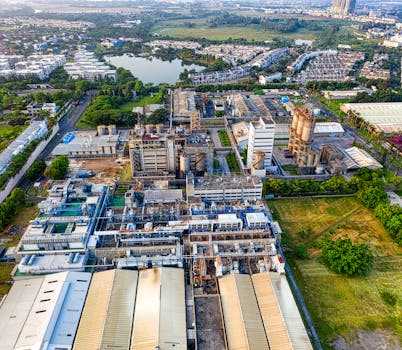
**
Indian Astronaut Shubhanshu Shukla's ISS Mission: A Glimpse into His Daily Life, Diet, and Scientific Experiments
The world watched with pride as Indian astronaut Shubhanshu Shukla successfully docked at the International Space Station (ISS), marking a significant milestone for India's space program. This historic event has sparked immense curiosity about Shukla's life aboard the orbiting laboratory, prompting questions about his daily routine, the food he consumes, and the scientific experiments he's conducting. This article delves into the fascinating details of Shukla's mission, offering a glimpse into his extraordinary experience.
A Day in the Life of an ISS Astronaut: Shubhanshu Shukla's Routine
Life aboard the ISS is meticulously planned and follows a rigorous daily schedule. Shubhanshu Shukla's typical day, while demanding, is a testament to human adaptability and resilience in the extreme environment of space.
Morning on the ISS:
- Wake-up and Hygiene: The day begins with a wake-up call, followed by a personalized hygiene routine adapted for microgravity. This includes specialized cleaning products and techniques to ensure cleanliness in a confined space.
- Exercise and Fitness: Maintaining physical fitness is crucial in space to combat the effects of prolonged weightlessness. Shubhanshu's daily regime includes rigorous exercise on specialized equipment like treadmills and resistance machines designed for the unique environment of the ISS.
- Breakfast and Briefing: A nutritious breakfast fuels Shukla for the day's activities. His meals are pre-packaged and carefully selected to provide essential nutrients. Following breakfast, a mission briefing ensures the team is coordinated and prepared for the day's experiments and maintenance tasks.
The Workday in Orbit: Scientific Experiments and Maintenance
Shubhanshu Shukla’s mission involves a range of scientific experiments, contributing to crucial research in diverse fields. These include:
- Materials Science: Investigating the behavior of materials in microgravity to develop advanced materials for future space exploration and terrestrial applications.
- Human Biology: Studying the effects of long-duration spaceflight on the human body, including bone density, muscle mass, and cardiovascular health. This research is critical for planning future long-duration missions to Mars and beyond.
- Earth Observation: Utilizing the unique vantage point of the ISS to conduct Earth observation studies, monitoring climate change, and gathering valuable data for environmental research.
- ISS Maintenance and Operations: A significant part of the astronauts' day involves maintaining and operating the ISS, ensuring the smooth functioning of the complex systems that support life in space.
Evening Routine: Relaxation and Communication
- Dinner and Downtime: After a long day of research and maintenance, Shukla enjoys dinner and some downtime. This might include communicating with family and friends back on Earth, reading, or simply relaxing and enjoying the breathtaking view of our planet.
- Sleep in Microgravity: Sleeping in microgravity is a unique experience. Astronauts sleep in sleeping bags secured to the wall to prevent floating around. A good night's sleep is essential for maintaining physical and mental well-being.
Food in Space: Shubhanshu Shukla's ISS Menu
The food consumed by astronauts on the ISS is meticulously planned and prepared to provide a balanced diet in a challenging environment. Shubhanshu's menu includes a variety of rehydrated and thermally stabilized foods, ensuring he receives the necessary nutrients to maintain health and energy.
- Rehydrated Foods: Many foods are dehydrated to reduce weight and volume for transport. They are rehydrated with hot or cold water before consumption.
- Thermostabilized Foods: These foods are processed to eliminate microorganisms and can be eaten directly from their pouches.
- Fresh Produce: While limited, fresh produce is occasionally flown to the ISS to provide a change of pace and important vitamins.
- Nutritional Considerations: The menu is carefully designed to meet the astronauts' energy requirements and prevent nutritional deficiencies. Special attention is given to calcium intake to mitigate bone loss in microgravity.
Challenges and Triumphs: Shubhanshu Shukla's Experience
While the mission offers incredible opportunities for scientific advancement and personal growth, it also presents unique challenges. Shubhanshu Shukla, like all astronauts, faces the challenges of adaptation to microgravity, isolation, and the constant demands of maintaining the ISS.
- Psychological Well-being: Maintaining psychological well-being is crucial during long-duration missions. Astronauts undergo rigorous training to cope with the psychological challenges of isolation and confinement.
- Physical Adaptation: Adapting to microgravity requires significant physical adjustments. Astronauts experience various physiological changes, including fluid shifts and bone loss.
- Technological Dependence: The ISS relies heavily on sophisticated technology. Any malfunction can create critical situations, demanding swift and effective problem-solving.
Shubhanshu Shukla's successful docking and subsequent work at the ISS represent a triumph not just for him but for India's ambitions in space exploration. His dedication and contributions to scientific research are a source of inspiration to millions. His mission continues to unfold, providing invaluable data and furthering our understanding of space and our place within it. Follow his progress and contribute to the excitement of India's continued exploration of the cosmos. We eagerly await the results of his scientific endeavors and his safe return to Earth.



















